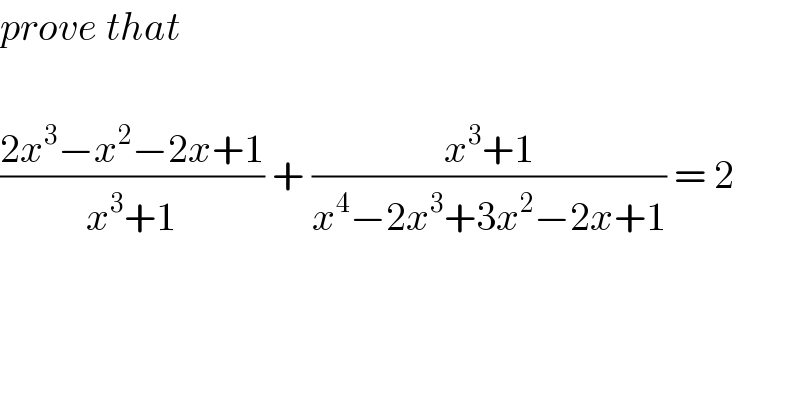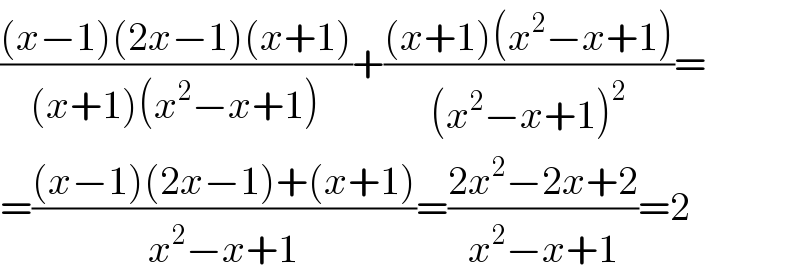
Question and Answers Forum
Question Number 69662 by aliesam last updated on 26/Sep/19

Answered by MJS last updated on 26/Sep/19

Commented by aliesam last updated on 26/Sep/19

| ||
Question and Answers Forum | ||
Question Number 69662 by aliesam last updated on 26/Sep/19 | ||
 | ||
Answered by MJS last updated on 26/Sep/19 | ||
 | ||
| ||
Commented by aliesam last updated on 26/Sep/19 | ||
 | ||